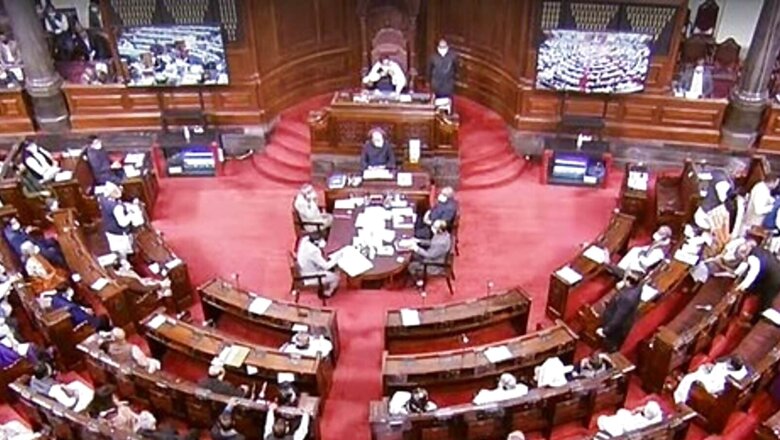
views
Parliament’s winter session is witnessing lawmakers move several bills on issues that have prompted much discussion. On Friday, a Rajya Sabha member from the ruling Bharatiya Janata Party moved a private member’s bill on population control.
Harnath Singh Yadav, who represents Uttar Pradesh in the upper house, moved the bill in a bid to formulate stringent uniforms laws to check the mammoth growth of population and the crises arising out of it.
Many BJP lawmakers have been introducing private member’s bills on population control, including Gorakhpur MP Ravi Kishan.
A member of parliament (MP) who is not a minister is considered a private member and a bill introduced by such a lawmaker is referred to as a private member’s bill. The bills introduced by ministers, on the other hand, are called government bills. The government bills have the backing of the government and reflect its legislative agenda. Whether a private member’s bill has to be admitted or not is decided by the Speaker of the Lok Sabha or Chairperson of the Rajya Sabha. An MP who wants to move a private member’s bill has to give at least a month’s notice, for the House Secretariat to examine it. While a government bill can be introduced and discussed on any day, a private member’s bill is only introduced and discussed on a Friday.
Rajya Sabha member Kirodi Lal Meena too moved a private member’s bill last week proposing a Uniform Civil Code (UCC). Meena when contacted said that the BJP has implemented all its agendas like the construction of the Ram Janmabhoomi temple, and abrogation of Articles 35A and 370. The MP said that he moved the private member’s bill on the implementation of UCC after getting approval from the party leadership and was glad that it was introduced with a majority despite many opposition lawmakers opposing it.
In the Rajya Sabha, Biju Janata Dal’s Dr Amar Patnaik introduced a private member’s bill, proposing 33 per cent reservation for women in Parliament.
The resolution says it seeks to increase the representation of women and ensure greater inclusivity in Parliament. It also calls for Election Commission-led efforts to encourage reservation for women in political parties.
While many MPs believe that the chances of their private member’s bills being accepted to be transformed into law are bleak, it certainly does give a glimpse into what the government is thinking if the lawmakers are from the BJP.
“The private member’s bills are also a way to find out what is the acceptability or objections that are prevalent in the opposition regarding an issue,” said a senior MP.
A few years ago, Rajya Sabha member Rakesh Sinha had introduced a private member’s bill seeking a legislation for the construction of a Ram temple in Ayodhya before the decision on the matter came. This too was done to test how the opposition would react, said sources.
Read all the Latest India News here


















Comments
0 comment